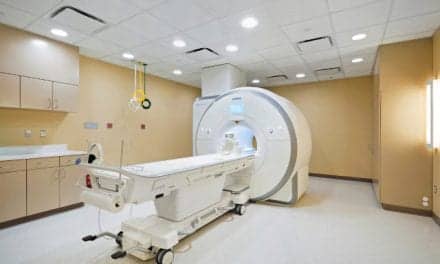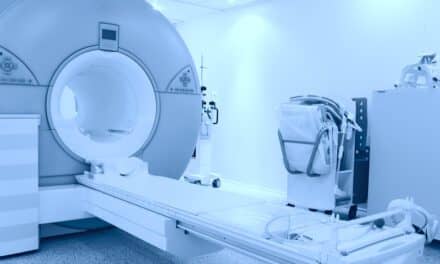According to an article in the American Journal of Roentgenology, MRI—with or without FDG PET coregistration—can improve the staging of patients with small cell lung cancer (SCLC).
“FDG PET/CT, whole-body MRI, and coregistered FDG PET/MRI outperformed conventional tests for various staging endpoints in patients with SCLC,” concludes first author Yoshiharu Ohno, MD, a radiologist at the Fujita Health University School of Medicine in Japan. Whole-body MRI and FDG PET/MRI outperformed FDG PET/CT for T category and thus TNM stage, “indicating utility of MRI for assessing extent of local invasion in SCLC.”
Ohno and colleagues’ prospective study included 98 patients (64 men, 34 women; median age, 74 years) with SCLC who underwent conventional staging tests (brain MRI; neck, chest, and abdominopelvic CT; bone scintigraphy), FDG PET/CT, and FDG PET/MRI within 2 weeks before treatment. After MRI technologists performed coregistration via proprietary software (Canon Medical Systems), two nuclear medicine physicians and two chest radiologists independently reviewed the examinations in separate sessions.
In patients with SCLC, accuracy for T category was higher (p<.05) for whole-body MRI (94.9%) and FDG PET/MRI (94.9%) than for FDG PET/CT (85.7%). Meanwhile, TNM stage accuracy was higher (p<.05) for whole-body MRI (88.8%) and FDG PET/MRI (86.7%) than for FDG PET/CT (77.6%) and conventional staging tests (72.4%).






